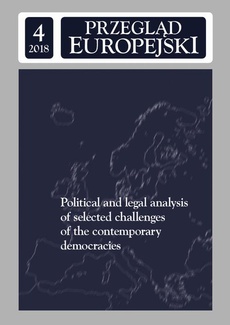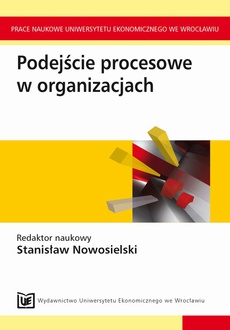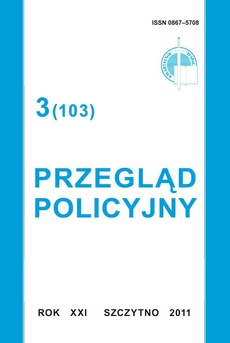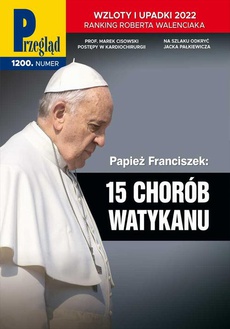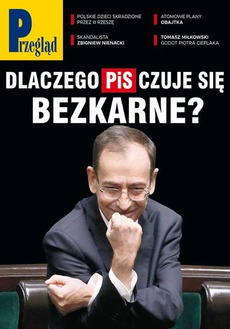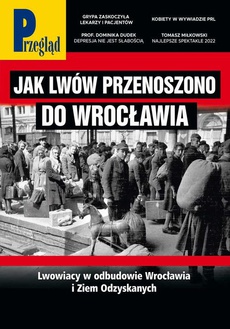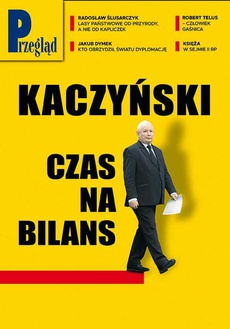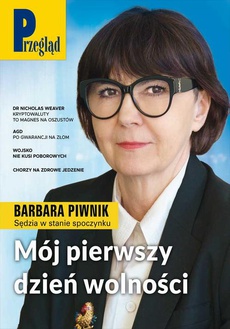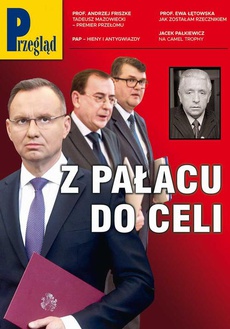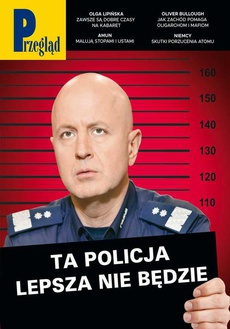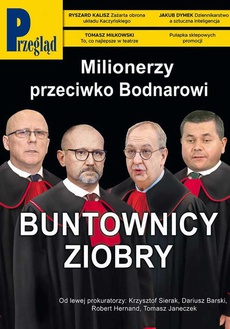POLECAMY
Przegląd Europejski 2018/4
Polityczna i prawna analiza wybranych wyzwań współczesnych demokracji
Redakcja:
Wydawca:
Format:
ibuk
Numer poświęcony jest wyzwaniom, które stoją przed naczelnymi organami państwowymi, w szczególności analizie problemów związanych z przystąpieniem Polski do strefy euro, instytucji impeachmentu, czy konstytucyjnymi uprawnieniami parlamentu szwedzkiego w zakresie podziału władzy. Zawiera również artykuły omawiające aktualne zagadnienia z prawa europejskiego, m. in. umowy handlowe "nowej generacji" oraz status prawny dronów.
| Rok wydania | 2018 |
|---|---|
| Liczba stron | 198 |
| Kategoria | Publikacje darmowe |
| Wydawca | Uniwersytet Warszawski |
| Numer wydania | 1 |
| Język publikacji | angielski |
| Informacja o sprzedawcy | ePWN sp. z o.o. |
Ciekawe propozycje
Przegląd Policyjny, nr 3(103) 2011
do koszyka
Przegląd. 1
do koszyka
Przegląd. 1
do koszyka
Przegląd. 2
do koszyka
Przegląd. 2
do koszyka
Przegląd. 3
do koszyka
Przegląd. 3
do koszyka
Przegląd. 4
do koszyka
Przegląd. 4
do koszyka
Spis treści
| TEORIA I METODOLOGIA STUDIÓW EUROPEJSKICH | |
| Tomasz Grzegorz GROSSE, The future of the euro area – Poland’s geo-economic perspective | 13 |
| Dieter SEGERT, Weak democracies under pressure, 1918 and 1989 in comparison | 37 |
| PRAWO, INSTYTUCJE I POLITYKI UNII EUROPEJSKIEJ | |
| Maciej ALEKSANDROWICZ, The constitutional position of the Swiss parliament in the context of the principle of separation of powers | 55 |
| Mateusz GREGORSKI, Analysis of international law on Unmanned Aerial Vehicles through the prism of European Union law | 73 |
| Marcin KLEINOWSKI, The impact of Brexit on the voting power in the Council of the European Union | 95 |
| Aleksandra SZCZERBA-ZAWADA, Martin DAHL, The theory of ordoliberalism and the principle of non-discrimination in EU law: implications for the Member States on the example of Polish Labour Code | 119 |
| Magdalena ŚLIWIŃSKA, New generation trade agreements as an economic challenge for the European Union and its Member States – the case of CETA | 141 |
| HISTORIA, KULTURA I SPOŁECZEŃSTWO W EUROPIE | |
| Srđan Mladenov JOVANOVIĆ, Poor governance, good corruption: an overview of Serbia’s government’s affair-ridden governance (2012-2018) | 161 |
| Joanna SKŁADOWSKA, Institution of Impeachment (Juicio Político) in selected states of Latin America | 179 |
| THEORIES AND METHODS IN EUROPEAN STUDIES | |
| Tomasz Grzegorz GROSSE, The future of the euro area – Poland’s geo-economic perspective | 13 |
| Dieter SEGERT, Weak democracies under pressure, 1918 and 1989 in comparison | 37 |
| EU LAW, INSTITUTIONS AND POLICIES | |
| Maciej ALEKSANDROWICZ, The constitutional position of the Swiss parliament in the context of the principle of separation of powers | 55 |
| Mateusz GREGORSKI, Analysis of international law on Unmanned Aerial Vehicles through the prism of European Union law | 73 |
| Marcin KLEINOWSKI, The impact of Brexit on the voting power in the Council of the European Union | 95 |
| Aleksandra SZCZERBA-ZAWADA, Martin DAHL, The theory of ordoliberalism and the principle of non-discrimination in EU law: implications for the Member States on the example of Polish Labour Code | 119 |
| Magdalena ŚLIWIŃSKA, New generation trade agreements as an economic challenge for the European Union and its Member States – the case of CETA | 141 |
| HISTORY, CULTURE AND SOCIETY IN EUROPE | |
| Srđan Mladenov JOVANOVIĆ, Poor governance, good corruption: an overview of Serbia’s government’s affair-ridden governance (2012–2018) | 161 |
| Joanna SKŁADOWSKA, Institution of Impeachment (Juicio Político) in selected states of Latin America | 179 |

